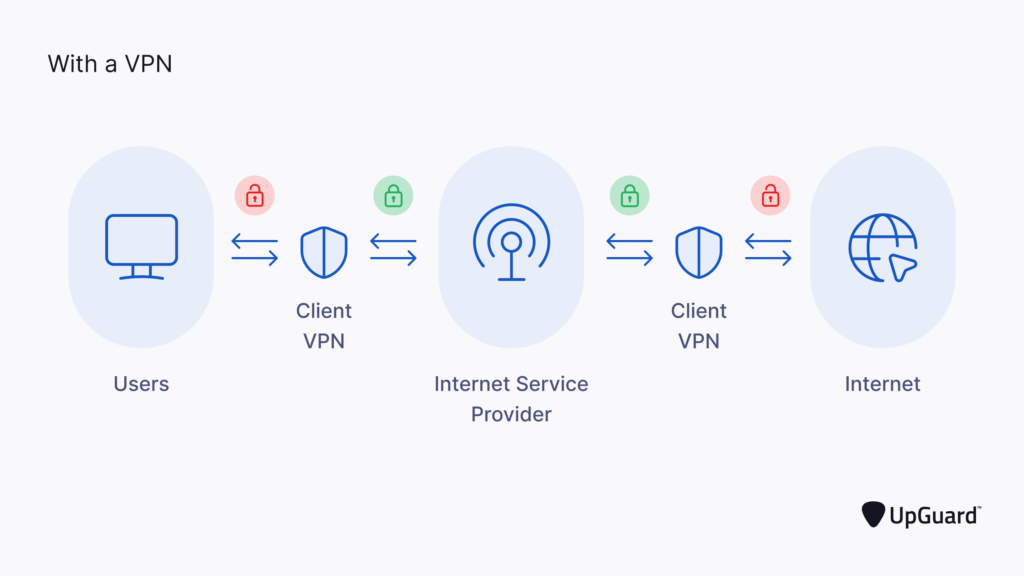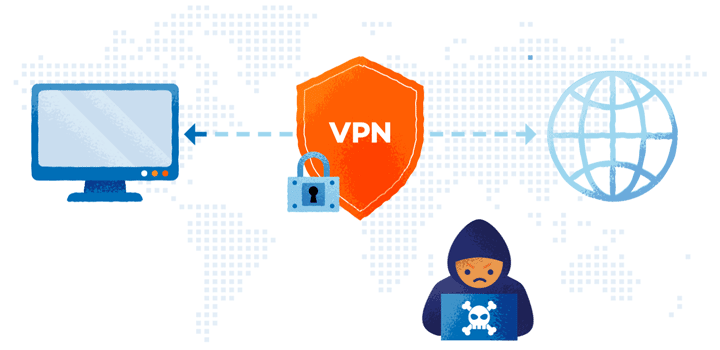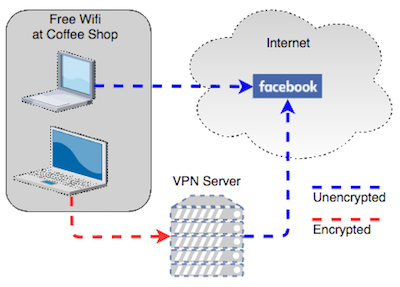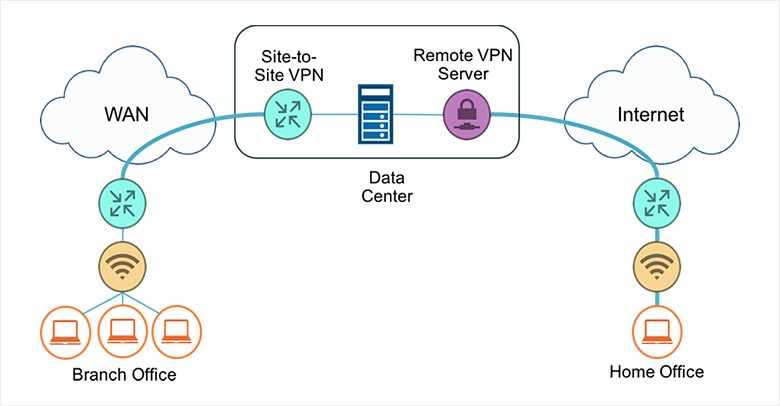Imagine the internet like a big open highway. Anyone can see what information you’re sending and receiving, kind of like driving with the windows down and everything in plain sight.
A VPN is like a private tunnel built on top of that highway. It encrypts your information, scrambling it like a secret code, so no one can peek in and see what you’re sending or receiving. This adds a layer of security, especially when using public Wi-Fi at coffee shops or airports.

In a nutshell, a VPN offers two main benefits:
Security: It encrypts your data, making it unreadable to anyone trying to snoop on your online activity.
Privacy: It masks your IP address, making it harder for websites and trackers to monitor your browsing habits and location.
How a VPN Creates Your own Private Path on the Information Highway

Imagine you’re cruising down a busy highway with all your windows open. Everyone can see what you’re doing – the music you’re listening to, the websites you’re visiting, even the messages you’re sending. That’s kind of how the internet works normally. Your information travels openly, and anyone with a little know-how could potentially peek in.
Enter the VPN: Your Personal Secure Tunnel
A Virtual Private Network (VPN) is like building a private tunnel on top of that highway. It encrypts your data, scrambling it into a code that looks like gibberish to anyone trying to snoop. Think of it like writing a secret message with a special code – only the intended recipient has the key to decipher it.
This encryption ensures your online activity stays private. Whether you’re checking your bank account at a coffee shop or sending a personal email, a VPN keeps your information safe from prying eyes.
IP Address? More Like Invisible Address!
But a VPN does more than encrypt data. It also hides your IP address. Your IP address is like your digital fingerprint, revealing your general location and internet service provider (ISP). With a VPN, your traffic gets routed through a remote server, making it appear as if you’re connecting from a different location altogether. This effectively masks your true IP address, making it harder for websites and online trackers to monitor your browsing habits and location.
Think of it this way: Normally, when you visit a website, it’s like leaving your calling card at the door. With a VPN, it’s like using a secret alias – the website only sees the VPN server’s information, not yours.
The Benefits of Enhanced Privacy
By encrypting your data and hiding your IP address, a VPN offers several benefits:
- Increased Security: Your online activities are shielded from hackers and snoopers on public Wi-Fi networks.
- Enhanced Privacy: Websites and trackers can’t easily monitor your browsing habits and location.
- Greater Freedom: You might be able to access geo-restricted content that’s normally unavailable in your region (depending on the VPN provider’s capabilities and local regulations).
Two Main Tunnels: End Point VPN and Site-to-Site VPN

End Point (Remote Access) VPN: This is the type we’ve been discussing so far. It’s like building a personal tunnel that connects your individual device (laptop, phone, etc.) to a remote VPN server. This is ideal for situations where you want to secure your internet connection on public Wi-Fi or access geo-restricted content.

Site-to-Site VPN: Imagine you have two separate offices on the highway, each with their own traffic. A Site-to-Site VPN is like building a secure tunnel that connects these two entire locations. This allows them to share resources and data privately over the public internet, as if they were on the same secure network. This is typically used by businesses with multiple locations.
Free vs Paid VPNs: Choosing the Right Path on Your Secure Journey
With so many VPN options available, you might be wondering: should you go for a free VPN or invest in a paid service? Let’s explore the differences between these two choices to help you decide which path is right for you.
Free VPNs: Hitching a Ride on the Open Road
Free VPNs can be tempting. They offer a basic level of encryption and may allow you to bypass geo-restrictions. However, there can be some hidden costs associated with free services:
- Limited Features: Free VPNs often restrict data usage, server locations, and connection speeds. You might experience buffering while streaming or slow downloads.
- Security Concerns: Some free VPNs employ weaker encryption protocols or even inject ads into your browsing. In the worst-case scenario, they might even log your data and sell it to third parties, defeating the purpose of privacy entirely.
- Unreliable Connections: Free VPNs can suffer from server overload, leading to frequent dropouts and disconnections. This can be frustrating and disrupt your online activities.
Paid VPNs: Owning Your Secure Lane
Paid VPNs offer a more comprehensive and reliable experience:
- Stronger Security: Paid VPNs typically use robust encryption protocols and advanced security features like kill switches (to automatically disconnect if the VPN connection drops) and leak protection.
- More Features: Paid VPNs provide a wider range of server locations, allowing you to connect from virtually anywhere in the world. You’ll also likely enjoy faster connection speeds and unlimited data usage, ideal for streaming and downloading.
- Better Customer Support: Paid VPN providers offer dedicated customer support to answer your questions and troubleshoot any issues.
Finding Your Perfect VPN Fit
The world of VPNs is vast, with a multitude of providers offering various features and pricing plans. Here are some tips to guide your research:
Identify Your Needs: Do you prioritize top-notch security, unlimited data for streaming, or access to specific regions? Understanding your needs will help narrow down your choices.
Research Reviews: Read reviews from trusted tech websites and user communities to gain insights into different VPN providers’ strengths and weaknesses.
Compare Features and Pricing: Don’t be afraid to compare plans from multiple providers. Consider factors like encryption protocols, server locations, data limits, connection speeds, and customer support options.
Look for Free Trials: Some reputable VPN providers offer free trials or money-back guarantees. This allows you to test the service and see if it meets your expectations before committing.